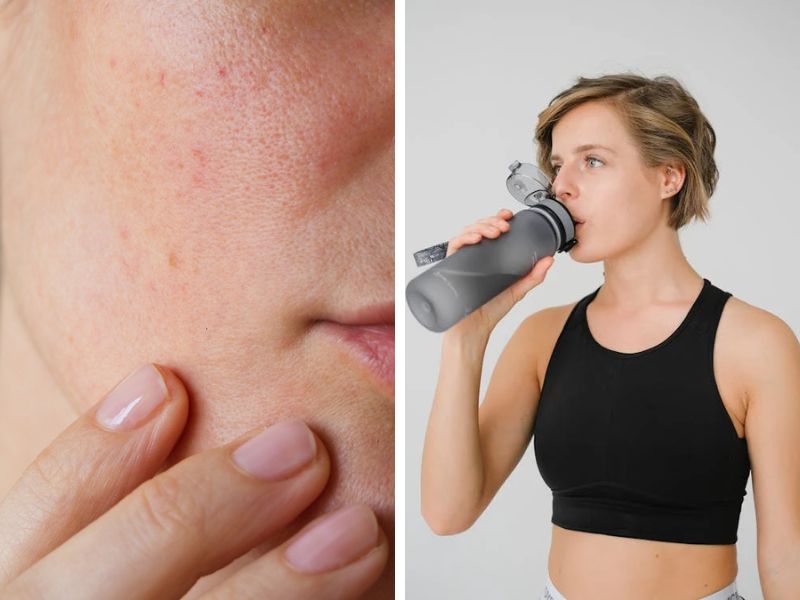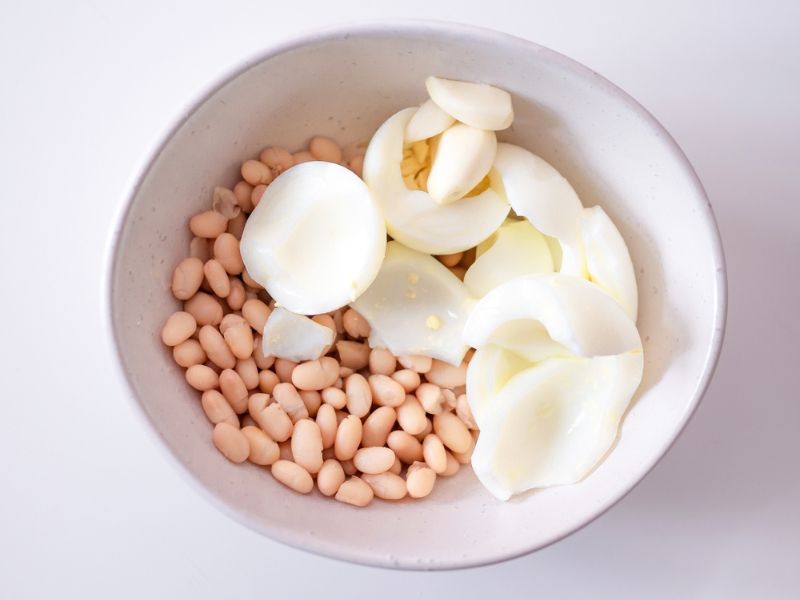A dry complexion can cause itchiness and flaking, making you feel uncomfortable and frustrated. It is not uncommon for dry skin to become an issue during winter as the air becomes drier and colder.
Some medical literature suggests that our dietary choices affect how our bodies retain moisture. It may also affect how our skin looks, especially during the colder months. The standard solutions people use to deal with dry skin include applying moisturizer to the skin, using a humidifier at home, and avoiding scorching baths and showers.
The following eating and drinking habits might be causing or exacerbating dry skin.

Image Credit: Shutterstock/Geinz Angelina & Pexels/Anna Shvets
You Don’t Drink Enough Water
In a nutshell, if your body is not adequately hydrated, your skin may appear dry. A lack of fluid in the body can cause dry skin due to dehydration. Sarah Allen, M.D., dermatologist and founder of the Skin Clique, said, “It’s important to drink plenty of water throughout the day to stay hydrated. It is imperative not only for your cells to function at optimal levels but also for skin hydration.”
Your Weekly Fish Intake Isn’t Sufficient
A weekly serving of fish should be approximately 8 ounces. The omega-3 fatty acids in fish, especially cold-water oily fish, may support factors like heart, vision, and mental health. However, although more human trials are needed, some evidence suggests omega-3 fatty acids can modulate the skin barrier, suppressing dry skin-induced scratching behavior.

Image Credit: Shutterstock/Video_Stock _Production
You Are Drinking More Alcohol
The body’s ability to hydrate itself is compromised by drinking too much alcohol, which can lead to dry skin. Your skin integrity won’t suffer if you drink a glass of wine or a beer mug now and then. Mocktails are enjoyable beverages without alcohol if you’re craving a cocktail.
Eggs Are Eaten Without Yolks
The egg’s yolk boasts many nutrients, including vitamin D. Recent research suggests that low vitamin D levels can negatively impact skin hydration. Furthermore, vitamin D is also found in salmon, mushrooms exposed to the sun, and fortified orange juice.